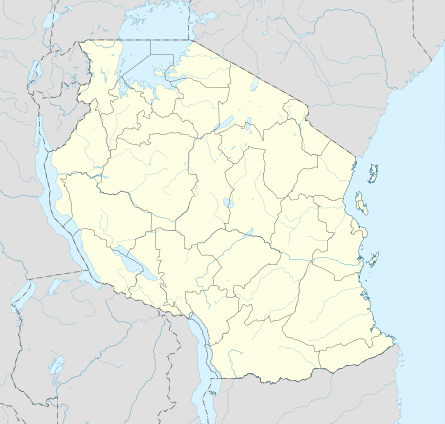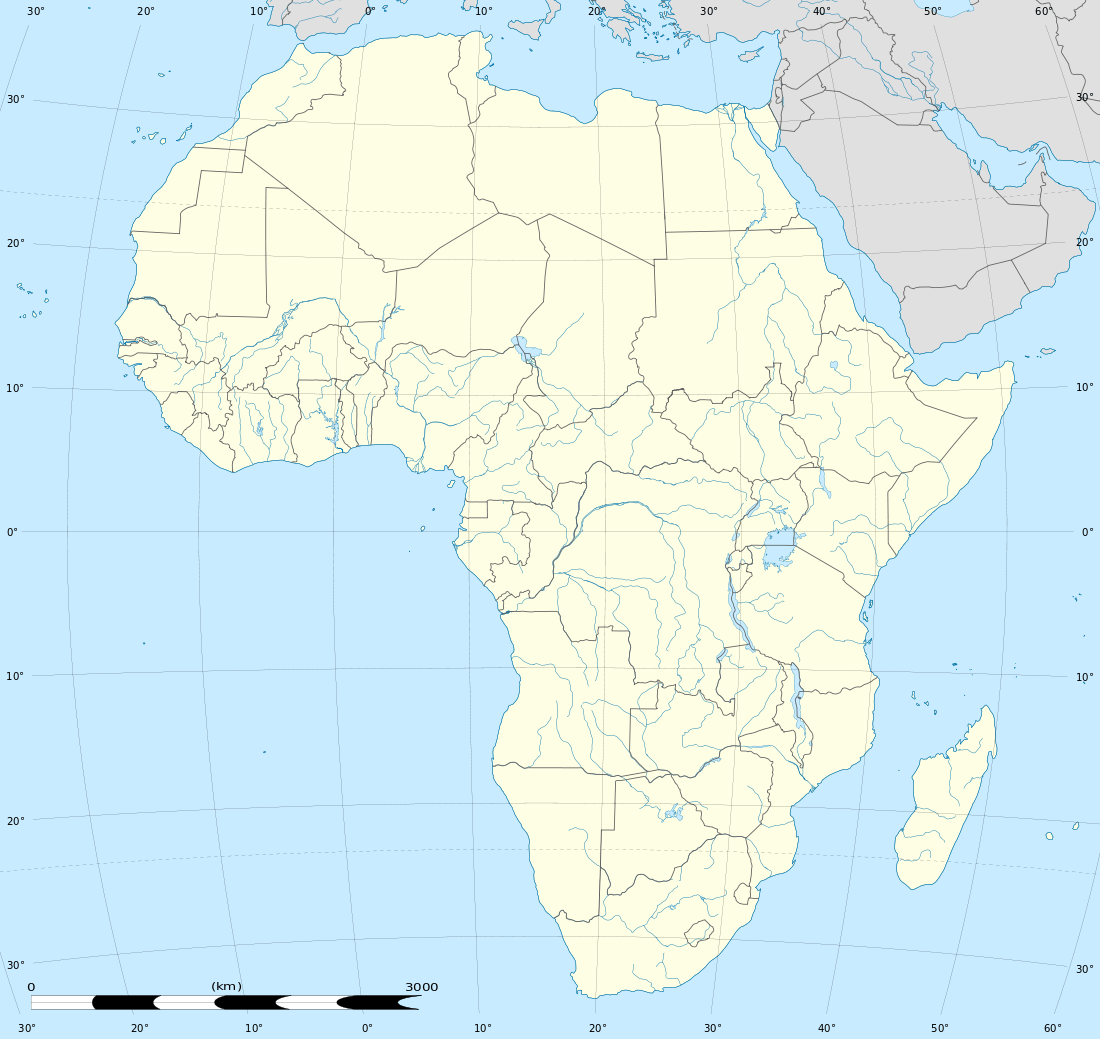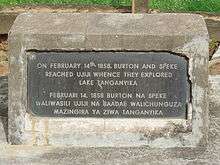Ujiji
Ujiji is the oldest town in western Tanzania, located about 6 miles (10 km) south of Kigoma. In 1900, the population was estimated at 10,000 and in 1967 about 41,000. Part of the Kigoma/Ujiji urban area, the regional population was about 50,000 in 1978.[2]
Ujiji | |
|---|---|
 | |
 Ujiji Location in Tanzania  Ujiji Ujiji (Africa) .svg.png) Ujiji Ujiji (Earth) | |
| Coordinates: 4°54′40″S 29°40′30″E | |
| Country | Tanzania |
| Region | Kigoma Region |
| Elevation | 2,565 ft (782 m) |
| Time zone | UTC+3 (EAT) |
| Climate | Aw |
Ujiji is the place where Richard Burton and John Speke first reached the shore of Lake Tanganyika in 1858. It is the site of the famous meeting on 27 October 1871[3] when Henry Stanley found Dr. David Livingstone, and reputedly uttered the famous words “Dr. Livingstone, I presume?” Livingstone, whom many thought dead as no news had been heard of him for several years and who had only arrived back in Ujiji the day before, wrote “When my spirits were at their lowest ebb, the good Samaritan was close at hand, for one morning [my servant] Susi came running at the top of his speed and gasped out, ‘An Englishman! I see him!’ and off he darted to meet him. The American flag at the head of the caravan told of the nationality of the stranger. Bales of goods, baths of tin, huge kettles, cooking pots, tents, etc., made me think, ‘This must be a luxurious traveller, and not one at his wits’ end like me.’”[4]
A monument known as the "Dr. Livingstone Memorial" was erected in Ujiji to commemorate the meeting. There is also a modest museum. There is a former slave route near the market. In 1878, the London Missionary Society established their first missionary post on the shore of Lake Tanganyika at Ujiji. Some in Burundi claim the location of the famous meeting is a few miles south of the former capital Bujumbura. However, the Livingstone-Stanley Monument in Mugere actually marks a visit the two men made 15 days later on their joint exploration of northern Lake Tanganyika.
Precolonial history
Initially an Arab slave trade route that began in the 1850s, formerly known as Ugoi.
Gallery
 The Burton and Speke Monument.
The Burton and Speke Monument. The cine atlas.
The cine atlas. The pan Africanism mural.
The pan Africanism mural.
References
- Ujiji, Tanzania, United Rep. of
- Populstat Tanzania, populstat.info; accessed 8 May 2014.
- "Stanley Meets Livingstone". Smithsonian. Retrieved 2019-02-12.
- Livingstone, David (1875). The Last Journals of David Livingstone, in Central Africa, from 1865 to His Death. Hartford, CT: R.W. Bliss & Company. p. 317. ASIN B003YJF3QK. republished by Qontro Classic Books (12 July 2010)
External links
- Photos
- Chisholm, Hugh, ed. (1911). . Encyclopædia Britannica (11th ed.). Cambridge University Press.